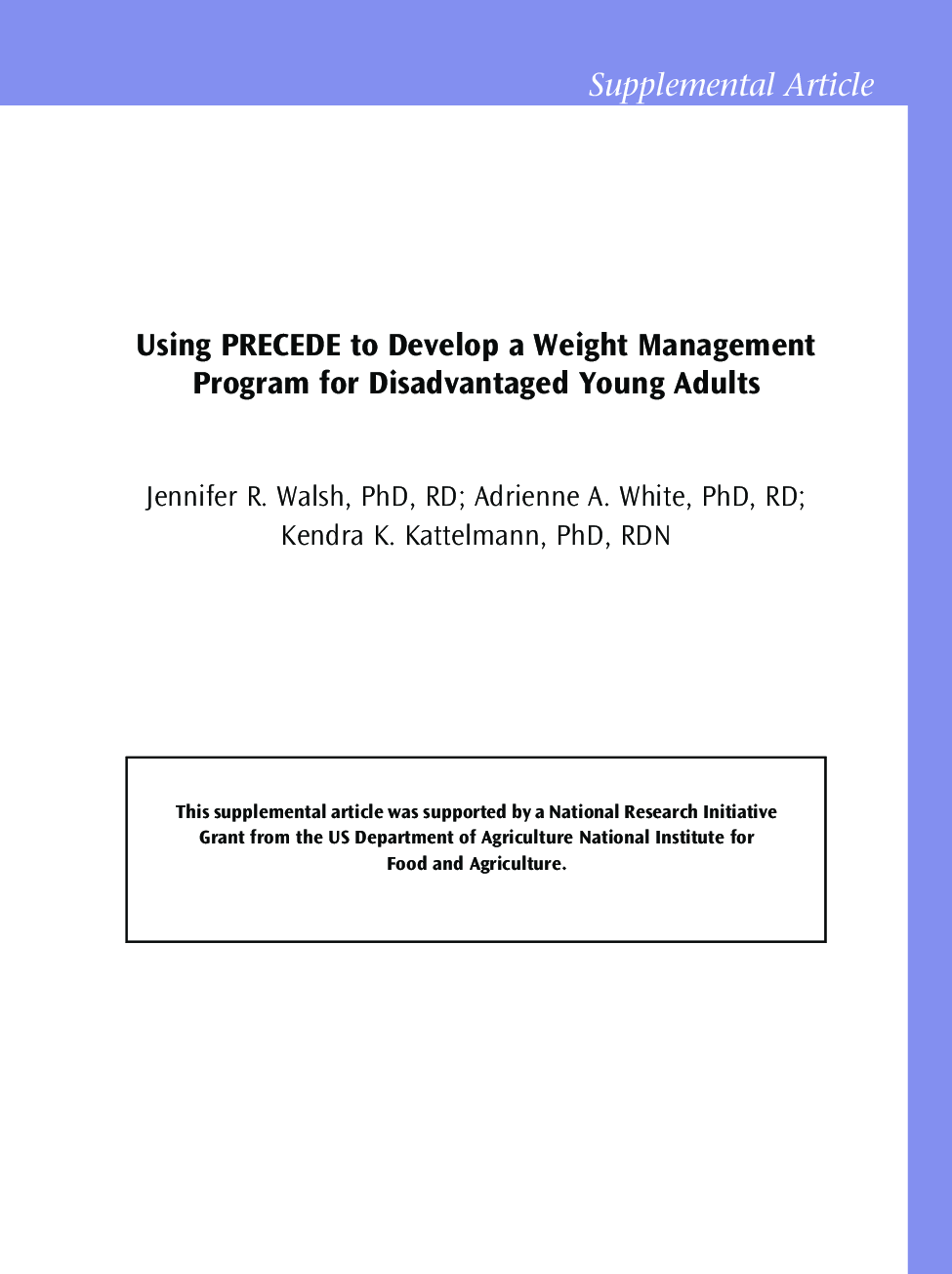| Article ID | Journal | Published Year | Pages | File Type |
|---|---|---|---|---|
| 361208 | Journal of Nutrition Education and Behavior | 2014 | 9 Pages |
ObjectiveTo conduct a needs assessment using the PRECEDE model for the development of a weight management program for low-income young adults.DesignFour phases were implemented using qualitative (focus groups and interviews) and quantitative (survey) methodologies, with steering committee guidance.SettingNortheastern residential vocational center.ParticipantsConvenience sample of low-income young adults, 18–24 years old (total n = 203), who were attending a job training vocational center.Phenomenon of InterestGeneral themes of life satisfaction determinants and issues related to weight, self-reported weight and related behavior, existing environmental supports, and desired changes of behavioral and environmental influences of weight.AnalysisContent analysis of qualitative data; descriptive analysis and Student t test.ResultsSelf-image and discrimination were themes for weight issues. More than half of participants were overweight or obese (57%) and had low levels of physical activity (58%). Self-reported fruit and vegetable intake was inadequate (<2.5 cups/d). Identified environmental factors most needing improvement were accessibility for walking and biking and availability of healthful food. Participants reported exercising, getting adequate sleep, eating healthful snacks, and effectively managing stress as behavior they were willing to change.Conclusions and ImplicationsThe PRECEDE model was useful to identify concerns, priorities, and modifiable factors among a young adult community that can increase the relevancy of a weight management program.
